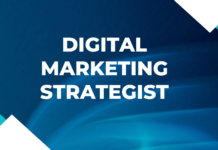The Future of Digital Marketing in the UK: Adapting, Innovating, and Thriving in 2024
The digital marketing landscape in the UK is a vibrant, ever-evolving scene. As we step into 2024, it’s clear that the future holds exciting possibilities alongside pressing challenges. To stay ahead of the curve and truly connect with audiences, UK businesses need to adapt, embrace innovation, and understand the key trends shaping the industry.
Here’s a deep dive into the UK’s digital marketing future, exploring what lies ahead in 2024 and beyond:
- AI and Machine Learning Take Center Stage:
The integration of AI and machine learning (ML) is already transforming digital marketing globally, and the UK is no exception. These technologies have the power to:
- Personalize at Scale: AI can analyze vast amounts of user data, offering marketers the ability to create hyper-personalized experiences for each customer. Imagine automated content recommendations, dynamic ad targeting, and chatbots that truly understand user needs.
- Optimize Campaigns: ML algorithms can analyze campaign performance in real-time, automatically adjusting variables for maximum effectiveness. This means goodbye to manual A/B testing and hello to data-driven optimization that maximizes ROI.
- Uncover Deeper Insights: AI can unlock hidden patterns and trends within your data, offering insights that human analysts might miss. This opens doors to more strategic decision-making and a deeper understanding of your target audience.
However, responsible use of AI is crucial. Transparency and ethical considerations remain paramount to maintain consumer trust and comply with regulations like GDPR.
- The Cookieless Future and Identity Solutions:
With the death of third-party cookies looming, marketers need to explore alternative methods for audience identification and targeting. This opens up avenues like:
- First-Party Data Strategy: Building robust first-party data platforms is essential. Encourage users to share information through opt-in forms, loyalty programs, and valuable content experiences.
- Contextual Targeting: Understanding user context (e.g., website content, search intent) becomes key. Contextual targeting solutions can analyze real-time data to deliver relevant ads without relying on individual identifiers.
- Identity Consortiums and Clean Rooms: Collaboration through industry-wide initiatives like identity consortiums can offer privacy-preserving solutions for targeting and measurement.
Adapting to a cookieless future requires a shift in mindset, focusing on building lasting customer relationships and leveraging contextual insights.
- Voice Search and Conversational Marketing Rise:
Voice-activated devices like smart speakers are becoming increasingly popular in UK homes. Businesses need to prepare for a future where voice search reigns supreme:
- Optimize for Voice Search: Ensure your website content and local listings are optimized for voice search queries. Use natural language and long-tail keywords to improve discoverability.
- Embrace Conversational Marketing: Explore chatbots and voice assistants to engage with customers directly through conversational interfaces. Offer information, answer questions, and even facilitate transactions through voice-driven interactions.
Remember, voice search often involves natural-sounding questions and longer phrases. Adapt your content and interactions accordingly to provide a seamless user experience.
- Video Takes Center Stage – But Not Just Any Video:
Video content continues to dominate user engagement, but the landscape is evolving:
- Short-Form Video Explosion: Platforms like TikTok and Instagram Reels are seeing explosive growth, especially among younger demographics. Create snackable, engaging video content that captures attention in seconds.
- Interactive and Personalized Video: Explore interactive video formats that allow users to make choices, influence the story, or access personalized content. This enhances engagement and brand recall.
- Livestreaming Authenticity: Livestreaming offers real-time interaction and transparency, building trust and fostering direct connections with your audience. Utilize it for product launches, Q&A sessions, or behind-the-scenes glimpses.
Video content needs to be high-quality, relevant, and optimized for different platforms and formats to truly stand out.
- Sustainability and Social Responsibility Take Hold:
Consumers are increasingly conscious of the environmental and social impact of their choices. This translates to digital marketing as well:
- Sustainable Marketing Practices: Reduce your marketing carbon footprint by optimizing website performance, utilizing less-energy-intensive content formats, and partnering with eco-friendly providers.
- Purpose-Driven Branding: Align your marketing messages with your brand’s social responsibility efforts. Showcase your commitment to sustainability, diversity, and ethical practices to resonate with conscious consumers.
- Transparency and Authenticity: Consumers value authenticity and transparency. Be upfront about your practices, address concerns, and demonstrate your commitment to making a positive impact.
Conclusion: Thriving in the Future of UK Digital Marketing
The future of digital marketing in the UK is a tapestry woven with innovation, adaptation, and a deep understanding of evolving consumer expectations. It’s a landscape where AI empowers personalization, privacy drives new identity solutions, and voice and video become immersive conduits for engagement. But amidst these exciting trends, remember the human element is paramount. Building trust, fostering connections, and aligning with your audience’s values are vital for building lasting relationships and achieving sustainable success.
Here are some key takeaways for thriving in the UK’s digital marketing future:
- Embrace continuous learning: The digital landscape is dynamic, so stay informed about emerging trends, technologies, and regulations.
- Invest in data and analytics: Leverage data to personalize experiences, optimize campaigns, and gain deeper audience insights.
- Build trust and transparency: Be upfront about data practices, address privacy concerns, and demonstrate ethical responsibility.
- Focus on customer experience: Create personalized, engaging experiences that build loyalty and advocacy.
- Integrate sustainability and purpose: Align your marketing efforts with your brand’s social and environmental values.
By embracing these principles and actively navigating the evolving landscape, UK businesses can ensure their digital marketing strategies not only survive but thrive in 2024 and beyond. Remember, the future belongs to those who adapt, innovate, and connect with their audience on a meaningful level. Are you ready to take the leap?
Read More: Crystalxone






